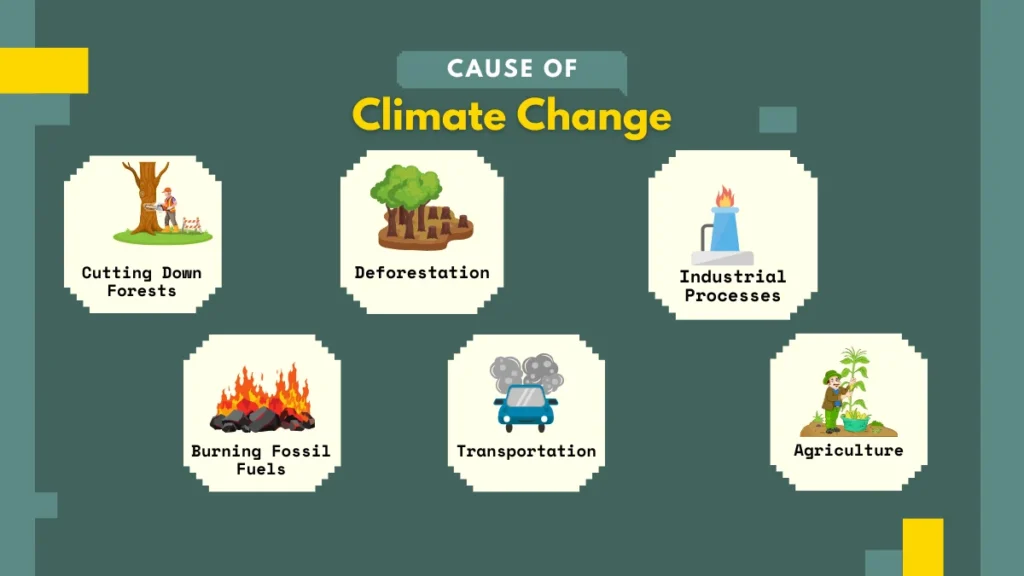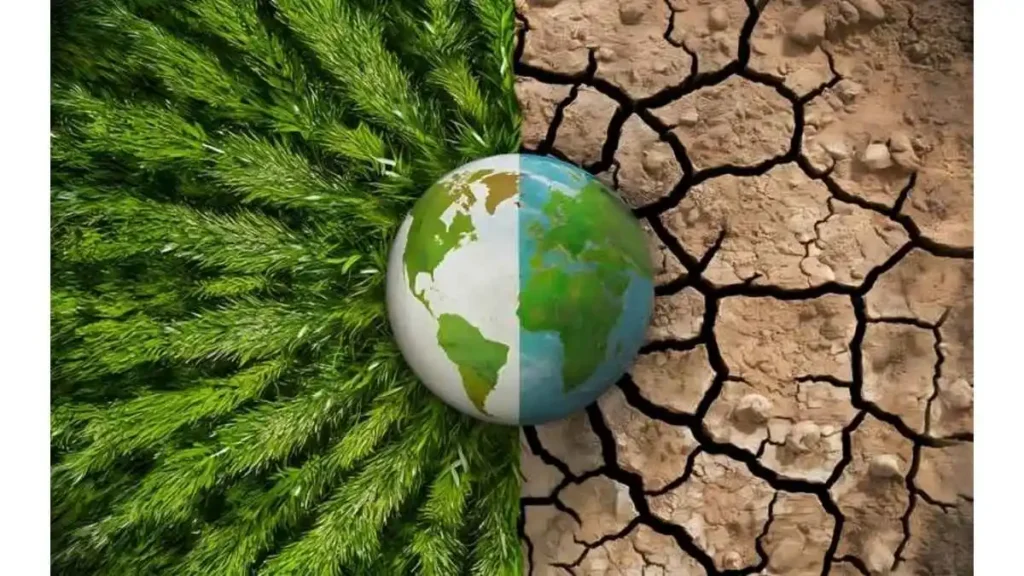GENERAL
Climate Change: The Ongoing Global Debate

Climate change refers to a long term change in temperature, precipitation patterns and other atmospheric conditions on earth. It is not an abrupt process rather it is a accumulative product of a number of continual and gradual processes such as solar radiations reaching earth due to gradual depletion of ozone layer. Since 1760, when industrial revolution took place, it wasn’t an issue, however with modernization concern started to arose about it, and today climate change is the most debated topic.
Table of Contents
Causes of climate change

Two major causes that contribute to drastic change in climate are:
Natural causes
- Volcanic eruptions
- Solar radiations
- Ocean current and climate cycles
Human induced activities
- Rapid urbanization
- Excessive use of fossils such as coal, natural gas
- Deforestation and land-use changes
Science behind climate change
Disruption of certain natural process due human activities result in change in climate. Some important factors that play significant role in climate change are
- The greenhouse effect: Incarceration of certain gases such as CO2, CH4-methane gas do not allow the reflected radiation from earth to reach outer space resulting in warming of earth . and it eventually lead to climate change
- Disruption of Carbon cycles: Carbon cycles refer to the movement of carbon between atmosphere, ocean, plants, and soil. Human activities are resulting in excessive CO2 emission, rendering the earth’s ability to absorb carbon dioxide. Therefore, the temperature of earth rising and unfavorable climate events occurs.
Impact of climate instability
It affects the biological, social and physical environment on a global scale. With higher temperatures we get melting of icecaps, resulting an increase sea-level and change in climate. Ecosystems degrade with alterations in climate preference, and farming suffers with unpredictable conditions. People are also threatened with expulsion, scarcity of resources as wells as poor health making the need for action to mitigate this climate crisis.

Mitigation strategies
Climate change if unchecked can be hazardous for mankind therefore certain strategies that mitigate the repercussion of climate crisis are as follow:
Global Initiatives
- Paris Agreement and international climate policies.
- Role of intergovernmental organizations.
Technological Innovations
- Transition to renewable energy sources (solar, wind, hydro).
- Development of carbon capture and storage technologies
Local and Individual Actions
- Energy conservation and sustainable living practices.
- Reducing, reusing, and recycling.

Conclusion
In conclusion, climate change has become a huge threat to the environment vegetation, human health and global stability. The IPCC is clear that if we wish to stave off the worst impacts, and ensure the safety of vulnerable populations, then emissions must be cut severely and rapidly, and people and societies need to adapt to these new circumstances. Climate change mitigation is a noble crusade that needs concerted action to protect future generations of the earth.
Stay inspired. Head to our blog for even more helpful content!
-

 GENERAL6 months ago
GENERAL6 months agoChristofle – For Those Who Dream of Family Heirloom Silver
-

 SPORTS8 months ago
SPORTS8 months agoDiscover the World of Football with Streameast: Watch Your Favorite Leagues and Tournaments
-

 GENERAL4 months ago
GENERAL4 months agoUncovering the World of кинокрадко: The Dark Side of Film Piracy
-

 GENERAL2 months ago
GENERAL2 months agoATFBooru: Anime, Gaming, and Subculture Imageboard























